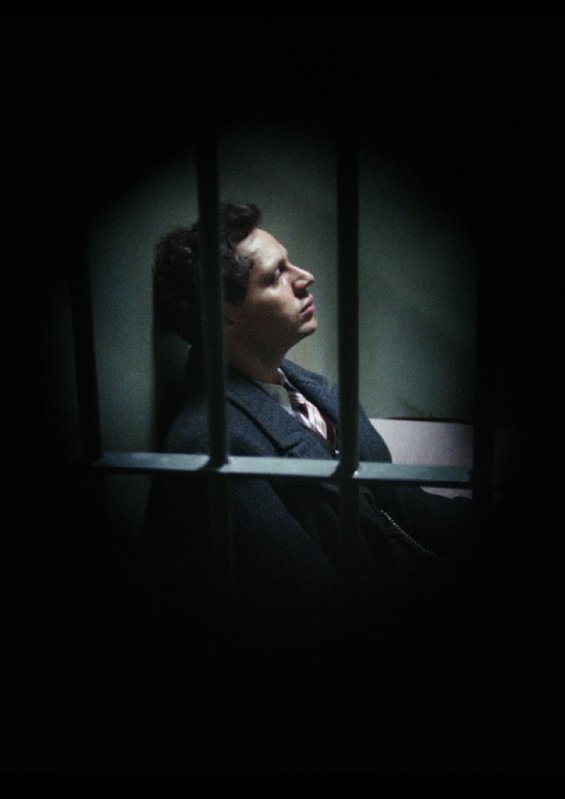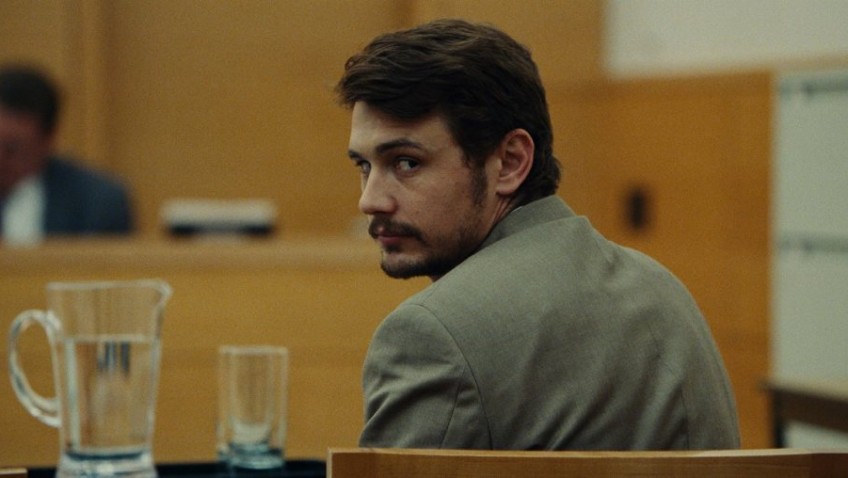Joyce Glasser reviews two films adapated from true stories – 13 Minutes and True Story
Two astonishing true stories are dramatised this week, but you should know by now that not all great stories make great cinema. Of the two, Downfall director Oliver Hirschbiegel’s 13 Minutes, a biopic about an ordinary, flirtatious, fun-loving German man who attempted to assassinate Hitler, is certainly the more worthy and important – lest we forget. British theatre director’s Rupert Goold’s attempt to join Sam Mendes on Hollywood’s A list is off to a shaky start with True Story, a thriller about a former New York Times journalist Michael Finkel and a murderer that sounds more thrilling than it is.
Respectably directed, well-acted and authenticated with excellent period production values, 13 Minutes is about the awakening of an ordinary and politically uncommitted German carpenter named Georg Elser (White Ribbon’s Christian Friedel) in the 1930s. As Elser observes his friends taken to concentration camps, Jews publicly humiliated and villagers turned into hateful sheep, Elser, like another other famous carpenter, makes the ultimate sacrifice to save humanity from sin personified as Adolf Hitler.
On November 8, 1939, a bomb made and planted by Elser goes off in Munich’s Bürgerbräukeller where Hitler is delivering his annual address to the old guard of his National Socialist Party. Elser, travelling alone, is arrested at the Swiss border with a blue print of the hall and a detonator in his pocket. He is told that while he murdered eight innocent workers, his real target had reportedly left the hall 13 minutes prior to the explosion.
 Elser is tortured for refusing to reveal his name and personal details to his interrogators, but eventually gives in to spare the life of his true-love, Elsa (Katharine Schuttler). Though Elser fails to kill Hitler, he does manage to humiliate and enrage the Führer through his insistence that he acted alone, based on his personal conviction that Hitler was bad for Germany.
Elser is tortured for refusing to reveal his name and personal details to his interrogators, but eventually gives in to spare the life of his true-love, Elsa (Katharine Schuttler). Though Elser fails to kill Hitler, he does manage to humiliate and enrage the Führer through his insistence that he acted alone, based on his personal conviction that Hitler was bad for Germany.
The police chief (Burghart Klaussner) and far nastier head of the Gestapo, Heinrich Müller (Johann von Bulow) report that no amount of torture has produced evidence that Elser was a political pawn. This news enrages Hitler anew and Elser is injected with experimental truth inducing drugs that prove equally fruitless in producing a confession.
Deftly handled flashbacks trace Elser’s adult life from a popular, musical; womaniser tied to no cause or person, to a man who acts to stop injustice. He saves Elsa, the woman he loves, from an abusive marriage to an alcoholic Nazi sympathiser, and then sacrifices his newfound happiness and, his life, to for a higher calling. Hirschbiegel and Friedel build a portrait of a very real and easily overlooked individual, who saw the inevitable course of history and summoned up the courage to try to stop it
While this powerful story redeems Hirschbiegel after his disastrous foray into British royalty with Diana, 13 Minutes fails to rise to the level of its subject matter. The film remains a competent, though uninspired and ordinary, period movie about an extraordinary hero.
Although both Jonah Hill (22 Jump Street) and James Franco (Pineapple Express, Spider Man) have been nominated for Academy Awards for their dramatic acting skills in Moneyball and 127 Hours respectively, the two are perhaps best known for their comedies, and even worked together in the ensemble comedy, This is the End. True story, based on the book of the same title by former New York Times journalist Michael Finkel, is no comedy. It tells the story of the unlikely collaboration between Finkel (Jonah Hill), a former New York Times journalist, and Christian Longo (James Franco), a swindler awaiting trial in Oregon for the brutal murders of his wife and three young children.
Finkel (Hill), with multiple cover stories behind him is implicitly trusted by his editors. When they discover he has played with the facts to simplify a longwinded cover story about child slavery in Africa he is dismissed. This high profile sacking leaves Finkel, an unemployed pariah, licking his wounds in Montana where he lives with his wife Jill Barker (Felicity Jones).
Shortly after the episode, Finkel learns from another reporter that Christian Longo (Franco), a murder suspect arrested in Mexico, had been using Finkel’s identity. Caught unaware, Finkel quickly Googles his name and realises that his good name has been tarnished anew. An experienced hustler, Finkel see Longo as an opportunity to sell a story that would restore his income, if not his reputation.
While we are quickly drawn in, Goold’s film and his screenplay, written with David Kajganich, are neither cinematic nor particularly dramatic. Though Longo’s story is chilling, it cannot appear so, because for most of the film, which takes place inside an Oregon prison, Longo is playing games with Finkel rather than delivering the gory details. Despite his shifty charm, Franco lacks the Hannibel Lecter factor and we are neither fascinated by nor frightened of this man with narcissistic personality disorder. While Finkel is kept guessing about Longo’s innocence or guilt, we are not, as it’s pretty clear, even for those unfamiliar with the 2003 verdict.
If Goold fails to jack up the tension in the men’s encounters, he also fails to give us someone to care about. Though the film, like the book, is about Finkel, Goold skirts over the real story, which is one of a brilliant journalist who abandons his judgment and objectivity in the face of his own self-destructive narcissism. Finkel bonds with Longo on the basis that both men are ‘exiled by their former communities’ – an ‘us against them’ mantra that removes the element of responsibility. While Finkel has blinded himself to the truth, Hill never looks pained by his failure to see what has wife has. Finkel manages to get a book out of the ordeal, but ironically, while Longo had several articles published in the New York Times from Death Row, Finkel never wrote for the paper again.




